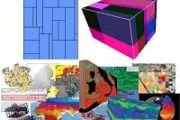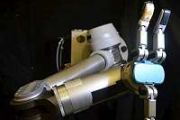
Copernical Team
Rx Networks launches TruePoint FOCUS to deliver real-time centimeter precision
 Rx Networks Inc., a leader in global navigation satellite system (GNSS) data services, has announced the debut of TruePoint FOCUS, a cloud-powered correction platform that provides near-instantaneous centimeter-level accuracy for positioning applications.
Engineered for precision-driven industries, TruePoint FOCUS caters to use cases that require consistent real-time accuracy. It supports
Rx Networks Inc., a leader in global navigation satellite system (GNSS) data services, has announced the debut of TruePoint FOCUS, a cloud-powered correction platform that provides near-instantaneous centimeter-level accuracy for positioning applications.
Engineered for precision-driven industries, TruePoint FOCUS caters to use cases that require consistent real-time accuracy. It supports Multi-Orbit and Multi-Partnership Strategies Shape the Future of Inflight Connectivity
 Inflight connectivity providers are making substantial advances in network strategy, hardware integration, and operator partnerships, reflecting the sector's shift toward scalable, high-performance services across multiple orbits and technologies. Several recent announcements from Eutelsat, Panasonic Avionics, SES, Intelsat, ThinKom, and Quvia demonstrate the competitive momentum behind multi-or
Inflight connectivity providers are making substantial advances in network strategy, hardware integration, and operator partnerships, reflecting the sector's shift toward scalable, high-performance services across multiple orbits and technologies. Several recent announcements from Eutelsat, Panasonic Avionics, SES, Intelsat, ThinKom, and Quvia demonstrate the competitive momentum behind multi-or A football field of archives shaped the identity of the Royal Observatory
 The vast archival legacy of George Biddell Airy, former director of the Royal Observatory, Greenwich, stretches 110 meters across the Cambridge University Library shelves-roughly the length of a football field. In a new paper published in Isis: the Journal of the History of Science Society, historian Yuto Ishibashi explores how Airy's meticulous approach to recordkeeping and standardization deep
The vast archival legacy of George Biddell Airy, former director of the Royal Observatory, Greenwich, stretches 110 meters across the Cambridge University Library shelves-roughly the length of a football field. In a new paper published in Isis: the Journal of the History of Science Society, historian Yuto Ishibashi explores how Airy's meticulous approach to recordkeeping and standardization deep Aitech launches compact AI-powered satellite platform for next-gen Earth and space intelligence
 Built upon more than three decades of space-proven electronic systems and trillions of miles of cumulative flight heritage, Aitech has introduced the IQSat, an ultra-compact, AI-enabled picosatellite platform capable of forming large-scale constellations. The new system enables broad, persistent coverage of the Earth, offering real-time insights into life patterns, environmental change, and stra
Built upon more than three decades of space-proven electronic systems and trillions of miles of cumulative flight heritage, Aitech has introduced the IQSat, an ultra-compact, AI-enabled picosatellite platform capable of forming large-scale constellations. The new system enables broad, persistent coverage of the Earth, offering real-time insights into life patterns, environmental change, and stra Eclipse quiets birds only in zones of near-total darkness
 A landmark study using community-sourced audio data has revealed that bird song diminished significantly only in areas of near-complete solar coverage during the April 8, 2024, total eclipse. The research, featured in Scientific Reports, marks the first scientific deployment of the Haikubox acoustic monitoring network.
Conducted by researchers at Loggerhead Instruments and the K. Lisa Yang
A landmark study using community-sourced audio data has revealed that bird song diminished significantly only in areas of near-complete solar coverage during the April 8, 2024, total eclipse. The research, featured in Scientific Reports, marks the first scientific deployment of the Haikubox acoustic monitoring network.
Conducted by researchers at Loggerhead Instruments and the K. Lisa Yang Solar wind compressions spark massive heatwaves on Jupiter
 A powerful solar wind surge that dramatically compressed Jupiter's magnetic boundary has been recorded for the first time, revealing unexpected heating effects across the gas giant's upper atmosphere.
University of Reading researchers uncovered this 2017 event in which a dense solar wind stream slammed into Jupiter, crushing its magnetosphere and generating a superheated zone across half t
A powerful solar wind surge that dramatically compressed Jupiter's magnetic boundary has been recorded for the first time, revealing unexpected heating effects across the gas giant's upper atmosphere.
University of Reading researchers uncovered this 2017 event in which a dense solar wind stream slammed into Jupiter, crushing its magnetosphere and generating a superheated zone across half t Saturn's moon Titan could harbor life, but only a tiny amount, study finds
 Titan, Saturn's largest moon, is a strange, alien world. Covered in rivers and lakes of liquid methane, icy boulders and dunes of soot-like "sand," its topography has long fascinated scientists and invited speculation on whether lifeforms might lurk beneath the moon's thick, hazy atmosphere.
An international team of researchers co-led by Antonin Affholder at the U of A Department of Ecolog
Titan, Saturn's largest moon, is a strange, alien world. Covered in rivers and lakes of liquid methane, icy boulders and dunes of soot-like "sand," its topography has long fascinated scientists and invited speculation on whether lifeforms might lurk beneath the moon's thick, hazy atmosphere.
An international team of researchers co-led by Antonin Affholder at the U of A Department of Ecolog Microscopy study in Earths harsh environments informs alien life search
 Body Text: Researchers at Portland State University have demonstrated that signs of microbial life can be consistently detected across a variety of Earth's most extreme habitats, findings that may shape future extraterrestrial life detection strategies. The team used digital holographic microscopy (DHM) to study samples in situ from remote locations, including deserts, Arctic regions, and alkali
Body Text: Researchers at Portland State University have demonstrated that signs of microbial life can be consistently detected across a variety of Earth's most extreme habitats, findings that may shape future extraterrestrial life detection strategies. The team used digital holographic microscopy (DHM) to study samples in situ from remote locations, including deserts, Arctic regions, and alkali In the quest for alien life, even empty results hold value
 What if future planetary surveys yield no evidence of life beyond Earth? A research team led by physicist Dr. Daniel Angerhausen from ETH Zurich's Exoplanets and Habitability Group, working in collaboration with the SETI Institute, has explored this very possibility. Their new study, published in The Astronomical Journal under the Swiss National Centre of Competence in Research PlanetS, uses Bay
What if future planetary surveys yield no evidence of life beyond Earth? A research team led by physicist Dr. Daniel Angerhausen from ETH Zurich's Exoplanets and Habitability Group, working in collaboration with the SETI Institute, has explored this very possibility. Their new study, published in The Astronomical Journal under the Swiss National Centre of Competence in Research PlanetS, uses Bay What null results in the search for life could still reveal
 BODY TEXT: What if, after decades of scanning the cosmos with cutting-edge telescopes, we still detect no signs of extraterrestrial life? A new study led by researchers at ETH Zurich, including SETI Institute affiliate Dr. Daniel Angerhausen, explores this possibility and argues that such null results can still offer profound insights. Using Bayesian statistical methods, the researchers aimed to
BODY TEXT: What if, after decades of scanning the cosmos with cutting-edge telescopes, we still detect no signs of extraterrestrial life? A new study led by researchers at ETH Zurich, including SETI Institute affiliate Dr. Daniel Angerhausen, explores this possibility and argues that such null results can still offer profound insights. Using Bayesian statistical methods, the researchers aimed to 































